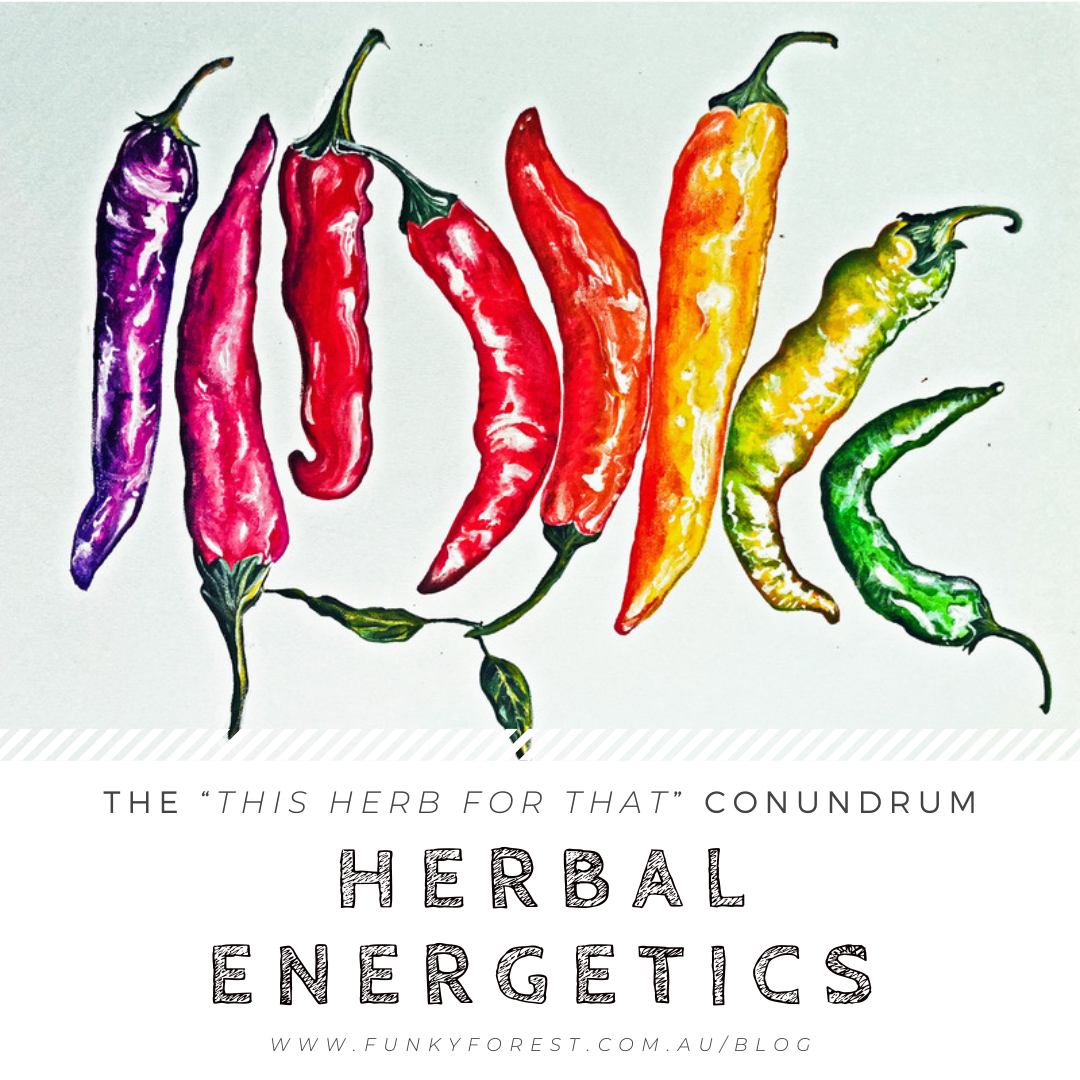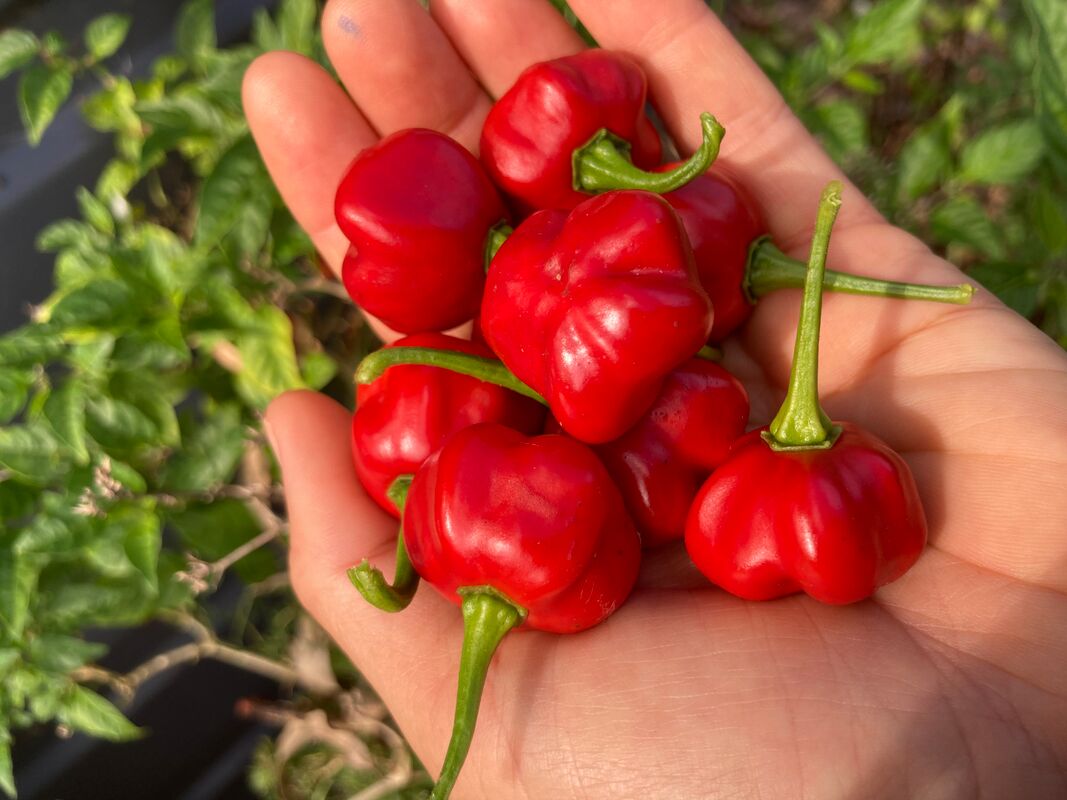If you ask me, "what herb is good for IBS?" or "what'll work for headaches?", you're going to get a long (and perhaps, unintentionally cryptic) answer.
This is because traditional herbal medicine is nuanced and individualised. Unlike in modern pharmacology, where you might pop a Panadol for a headache (regardless of what kind of headache it is), there are no herbs "for" any one disease state.
Instead, there are herbs that can exert certain influences on the body, and those herbs may or may not suit a specific person's constitution and current physiological and energetic state.
For instance, some people run hot, others easily feel the cold. We all know that friend who wears multiple layers of clothing and loves sipping on hot tea, even in the middle of Summer - chances are they have a cooler constitution.
Some people tend towards dryness, others towards dampness. You can likely bring to mind that person in your life who sweats really easily, or is always blowing their nose, or maybe experiences a lot of fluid retention in their hands and feet. Maybe that person is you.
Finally, some of us have contracted, tight tissues and others more relaxed or even too lax. As a yoga teacher I see the extremes of this when teaching students, with some folks hypermobile and others telling me they shouldn't be in class because they "can't even touch their toes" (by the way, that's a really good reason to come to yoga!)
These configurations aren't static. You can be both dry and damp, for instance, in different parts of the body at one time. You can be someone who normally runs cold, but you may catch a cold and run a fever and feel uncomfortably hot. And you may change states depending on your life, seasonal and hormonal cycles.
All of these considerations, and more, are taken into account when I am with you. I'm taking note not only of the words you are saying about your health or what you wrote in your diet diary, but also the way you walk into the room, your voice. In addition to analysing pathology results or calculating the nutritional adequacy of your diet, I may look at your tongue, feel your pulse, look at your irises.
All of these things point towards your unique energetics, your constitution. And if I can figure that out, then I am better equipped to choose the herb/s that are going to best support you at any one time, based on their energetics.
Some herbs are cooling, some are warming. Some reduce excess dampness, and others are nutritive and help bring hydration and softness to certain tissues. Some herbs encourage tightening up of the tissues, and others help unwind and relax them.
The form of herbs I prescribe for you is also important, with herbal teas sometimes trumping tinctures, or topical preparations being the most effective option.
Similarly, the timing and size of the dose is highly individualised. Drop dosing works best for more sensitive people, whilst larger doses are necessary to get things moving in other folks.
And then there's taste, energetics and balance between herbs to consider in the formulation you take home to experiment with. And do note, we are "experimenting" with the herbs and adjusting as time goes on!
So for that headache, I'm more interested in the pattern causing the headache than just giving a "headache herb". Is there heat, dryness, tension, and/or stagnation behind it? And is it a frontal headache, or does it radiate up from your shoulders? Is it sharp and stabbing or dull? Does it come and go or is it always there? Does the headache piss you off mightily, or make you want to curl up in bed and cry? When a naturopath asks these seemingly random questions, I promise it is all with intention!
On top of all these energetic considerations, of course I'm bringing in the clinical evidence, i.e. what the scientific literature tells us about the herb's phytochemistry and how to use it. I'm also checking your medications and supplements, scanning for potential interactions, looking at your pathology results, investigating genetic polymorphisms, analysing your diet, and considering where you're at in your menstrual and other physiological cycles. This analytical approach is what my 4-year naturopathy degree focussed on, and what my three science degrees have taught me.
However, there are aspects of herbal medicine that aren't covered in the literature, including the intuitive sense one gets about a herb and about the person in front of me. This energetic aspect of herbalism can be just as (if not more) complex as the biomedical model.
I hope this is a helpful answer to the "what herb is good for this?" conundrum. I promise my "it depends" and "it's complicated" answer is genuine, and I'm not holding out on you!
Since I've recently picked up a little work as a naturopath at my local co-op, I expect I'll be asked many more a "what'll work for this?" question :) I’ve also recently embarked upon some additional study into herbal energetics. It’s been so lovely to meet other herb nerds who froth over this stuff!
FYI I'm Pitta-Vata (Ayurveda) / sanguine-choleric (Humoral) / Wood-Fire element (TCM), and I have a lot of air in my astrological chart (at this point, anyone who knows me well would eye roll knowingly). I tend to run warm and experience overly tense tissues, although this has changed over my lifetime, and changes throughout the seasons and my cycle! As it does for all of us.
Now you know a little more about why taking the time for a 1-on-1 consultation is so valuable for cases that aren't incredibly simple and straightforward (so, in most cases). For acute conditions like a cold or cut, a “this for that” approach to herbs can definitely work, and work well. But the more chronic your condition/s are, the more nuance and detail needs to be considered in your treatment approach. Good case taking really become important, and that takes more than 5-10 minutes. I take 90 minutes for an initial naturopathic consultation, which is usually long enough to begin peeling back some layers and getting to know you well enough to address multiple facets of your health situation.
It’s in treating chronic and complex conditions that considering herbal energetics - and your energetics - can make the difference between a so-so herbal prescription, and one that hits the sweet spot and gets the job done.
Wishing you all the constitutional support you need,
Casey



































 RSS Feed
RSS Feed



